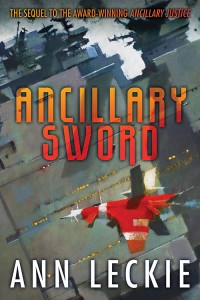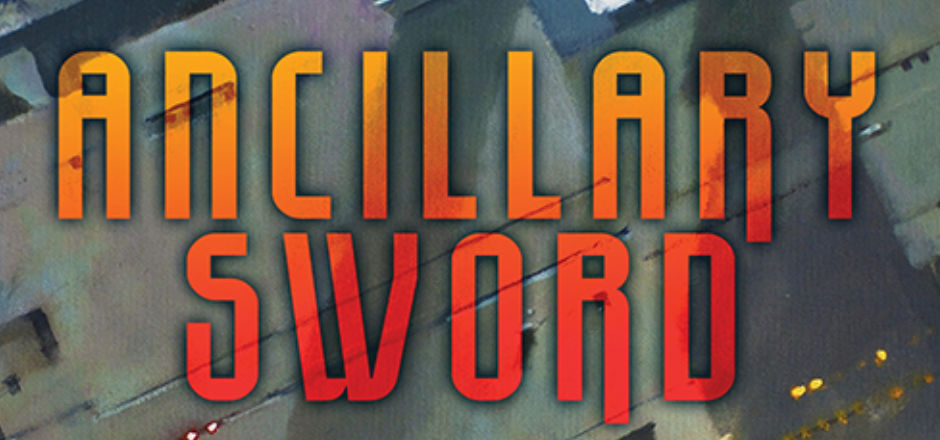 In the sequel to Ancillary Justice, narrator Breq—now Breq Mianaai—is fleet captain in the Radch, where she has been granted the ship Mercy of Kalr. As she readjusts to life in the empire, she continues her mission to seek out the corruption rotting away at the Radch’s core, bringing her into contact with the political and economic corruption of Athoek.
In the sequel to Ancillary Justice, narrator Breq—now Breq Mianaai—is fleet captain in the Radch, where she has been granted the ship Mercy of Kalr. As she readjusts to life in the empire, she continues her mission to seek out the corruption rotting away at the Radch’s core, bringing her into contact with the political and economic corruption of Athoek.
It’s not a secret I absolutely adored Ancillary Justice, the first book in the Imperial Radch series—in fact, not only did we read it for the March book club selection, it was also on my list of editor’s picks for 2013. I’m not the only one, either: Ancillary Justice received the 2013 Nebula for Best Novel, the 2014 Arthur C. Clarke Award for Best Novel, and—most recently—the 2014 Hugo Award for Best Novel.
And let me tell you: as sequels go, Ancillary Sword does not disappoint.
The very best parts of Ancillary Justice were back in full force in its sequel. The series is about individual identity and empire, and Ancillary Sword moves beyond the scope of the first novel in that its primary critique is about how an empire treats the ethnic groups it conquers even after those ethnic groups are, supposedly, given full rights of citizenship. The discussion is a logical progression of underlying themes in the series that begin when the reader learns the Radch used people from conquered planets to create ancillary bodies for the AIs of warships—in effect, soldiers with human bodies controlled by computer.
Another theme explored in the story is Breq’s criticism of the Radch as an empire, and her further critique of the culture that thousands of years of expansion and exploitation had corrupted. She discusses her perceptions of the economic corruption she encounters, namely the maltreatment of the working class by what makes up Athoek’s own “one percent,” and the political injustice caused by socioeconomic disparity and the privileges of the wealthy.
There were few things in the book that gave me pause. I was a little disappointed in the overall lack of one of my favorite characters, Seivarden, who spent most of the book separated from Breq on another ship. That’s pretty minor, as complaints go—but really, Seivarden’s great, and the book could have used just a bit more of Breq bossing Seivarden around.
I also felt the book started a bit slowly. The overall pacing of the book was great, and I enjoyed the storyline itself. For some reason, though, I found myself surprised when the real meat of the story popped up. I doubt the slow start will affect those who really enjoy the style of the book, but for those who are more interested in Things That Happen, it may drag just a little.
The series is a big-picture story, and while great attention is given to Breq’s development as a (now) human, the most fascinating part of the story is about the overarching galactic-level plotline. While Ancillary Sword‘s ideas seem intimidating, the pacing of the story and the humor in the writing style keep the book interesting and lively. Highly recommended for readers of adult science fiction, especially for those with an interest in post-colonialist concepts.
4.5 out of 5 stars
Looking for more on the Radch? We interviewed Ann Leckie last year about Ancillary Justice. You can also read a short story set in the same universe, “Night’s Slow Poison,” at Tor.com while you wait with bated breath to check out Ancillary Sword.





